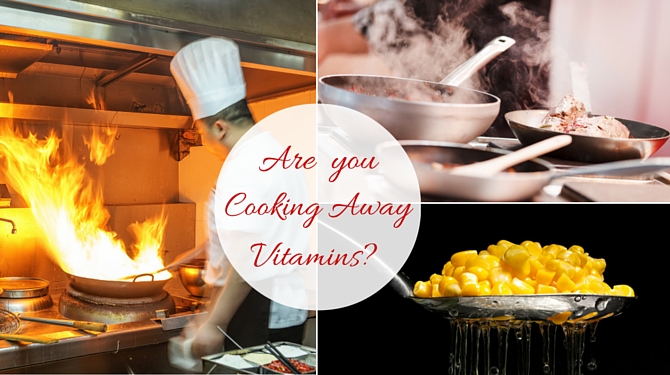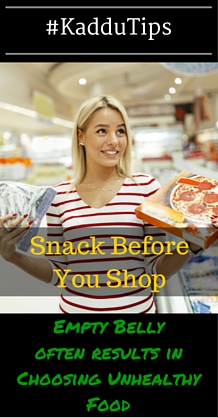
Are you losing your nutrients while trying to make your food tasty?

Cooking is a culinary art which makes the food more palatable. However during cooking, exposure to heat, light, oxygen alters the nutrients in the food and may lead to significant nutrient losses. However cooking also improves the digestibility of foods, increases availability of certain phytonutrients and decreases antinutrient factors as an advantage other than ofcourse making the food tasty. So we need to develop the art of smart cooking to be able to enjoy delicious at the same time nutritious food .
How we lose nutrients and what we can do to prevent it?
Drained away with water: Water soluble vitamins which are the B complex vitamins and vitamin C are easily lost when vegetables containing these are soaked and the water used for soaking is drained away. These vitamins are lost even during washing or when the water used to boil or blanch the food containing them is thrown away. Minerals also get leached out from boiled legumes but are more stable as compared to vitamins.
Prevention:
- Avoid soaking vegetables before washing to preserve the water soluble vitamins and minerals.
- Water used to soak (if necessary), boil or blanch the vegatables should be used to make gravies ,soups or to knead dough.
- Water left after making paneer is called whey and is very good quality protein. It should be consumed as it is or by flavouring it by using lime, salt or pepper.
- Wash the vegetables before chopping and not after chopping.
Heat: Some vitamins are heat labile i.e they get destroyed when exposed to too much heat. Of these, thiamin(B1),folate , Vitamin B 12 and vitamin C are most unstable and are easily destroyed by heat. Longer cooking time, higher temperatures, baking, canning and dehydration causes maximum loss of these vital nutrients.
Prevention:
- Cook for minimum time , enough to make the food palatable and safe.
- Avoid reheating several times.
- Among the various cooking methods, pressure cooking and microwave are the best to preserve nutrients as food cooks faster and requires no added water.
- When boiling, let the water boil first , then add the raw vegetable.
Air: Exposure to air, basically oxygen causes oxidation of Vitamin C .Oxidative losses increase with temperature, long cooking time and cutting vegetables into small pieces or mashing them. Vitamin A is also prone to oxidation .
Prevention:
- Cut salads, just before you are going to serve them .
- Serve salads,gravies in closed dishes to avoid exposure to air.
- Do not cut vegetables into very small pieces as each small part will come in contact with oxygen, thus destroying the vitamins.
Light: Vitamins such as Riboflavin (Vitamin B2),Vitamin E and K are light sensitive and so sun drying, cooking foods in pots open to light causes destruction of the vitamins.
Prevention:
- Keep the food covered at all times.
Alkaline medium: Adding soda while cooking makes the cooking medium alkaline. It enhances colour of green vegetables, and fastens the cooking process , however it destroys Vitamin B 1 ,B2, B6 , Vitamin C and Vitamin K to a large extent.
Prevention:
- Do not use soda during cooking. Pinch of sugar can be added instead to retain the colour.











